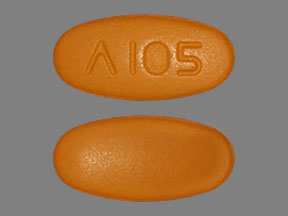
Lyrica Cr Coupons & Savings Card – Discount Prices from $36.65
Brand for: Pregabalin er
My prescription
Edit
165MG, Pregabalin ER (30 Tablet Extended Release 24 Hours)
Select pharmacy

CVS
$36.65
COUPON PRICE
Albertsons
$79.16
COUPON PRICE
Walgreens
$88.50
COUPON PRICE
Walmart
$490.91
COUPON PRICELyrica Cr savings card
Show this card to your pharmacist
CVS
$36.65
BIN
ID
PCN
GRP
019876
LH93B855F1
CHIPPO
LHX
Powered by
More prescriptions for postherpetic neuralgia
More prescriptions for postherpetic neuralgia
Price history for Lyrica Cr (brand) & Pregabalin ER (generic)
30 Tablet Extended Release 24 Hours, 165MG
Average retail price for Lyrica Cr
Average retail price for Pregabalin ER
Average SaveHealth price for Pregabalin ER
Our price history data is based on aggregated prescription data collected from participating pharmacies in America. Our prescription data updates daily to reflect the latest price changes. If you notice a missing data point, it means there wasn't sufficient data available to generate a monetary value for that date.
Over the last 12 months, the average discount price of Lyrica Cr is $92.13 using the SaveHealth savings card. That's an average savings of 85.03% on Lyrica Cr with our discount card.
*Retail prices are based on pharmacy claims data, and may not be accurate when we don't have enough claims.
Lyrica Cr (Pregabalin ER) dosage forms
Dosage Quantity Price from Per unit 82.5MG 30 Tablet Extended Release 24 Hours $42.64 $1.42 82.5MG 45 Tablet Extended Release 24 Hours $54.80 $1.22 82.5MG 60 Tablet Extended Release 24 Hours $66.97 $1.12 82.5MG 90 Tablet Extended Release 24 Hours $99.31 $1.10 82.5MG 120 Tablet Extended Release 24 Hours $123.64 $1.03 165MG 30 Tablet Extended Release 24 Hours $36.65 $1.22 165MG 7 Tablet Extended Release 24 Hours $22.58 $3.23 165MG 28 Tablet Extended Release 24 Hours $35.42 $1.26 165MG 60 Tablet Extended Release 24 Hours $55.00 $0.92 165MG 90 Tablet Extended Release 24 Hours $81.34 $0.90
| Dosage | Quantity | Price from | Per unit |
|---|---|---|---|
| 82.5MG | 30 Tablet Extended Release 24 Hours | $42.64 | $1.42 |
| 82.5MG | 45 Tablet Extended Release 24 Hours | $54.80 | $1.22 |
| 82.5MG | 60 Tablet Extended Release 24 Hours | $66.97 | $1.12 |
| 82.5MG | 90 Tablet Extended Release 24 Hours | $99.31 | $1.10 |
| 82.5MG | 120 Tablet Extended Release 24 Hours | $123.64 | $1.03 |
| 165MG | 30 Tablet Extended Release 24 Hours | $36.65 | $1.22 |
| 165MG | 7 Tablet Extended Release 24 Hours | $22.58 | $3.23 |
| 165MG | 28 Tablet Extended Release 24 Hours | $35.42 | $1.26 |
| 165MG | 60 Tablet Extended Release 24 Hours | $55.00 | $0.92 |
| 165MG | 90 Tablet Extended Release 24 Hours | $81.34 | $0.90 |
| 330MG | 5 Tablet Extended Release 24 Hours | $21.70 | $4.34 |
| 330MG | 14 Tablet Extended Release 24 Hours | $29.66 | $2.12 |
| 330MG | 30 Tablet Extended Release 24 Hours | $42.64 | $1.42 |
| 330MG | 60 Tablet Extended Release 24 Hours | $66.97 | $1.12 |
| 330MG | 90 Tablet Extended Release 24 Hours | $99.31 | $1.10 |
Using the SaveHealth discount card, what is the price of Lyrica Cr without insurance?
Using the SaveHealth discount card, the price of Lyrica Cr without insurance is $36.65.
What is the price of Lyrica Cr at CVS?
The price of Lyrica Cr at CVS is $36.65.
What is the price of Lyrica Cr at Walgreens?
The price of Lyrica Cr at Walgreens is $88.50.
What is the price of Lyrica Cr at Walmart?
The price of Lyrica Cr at Walmart is $490.91.
